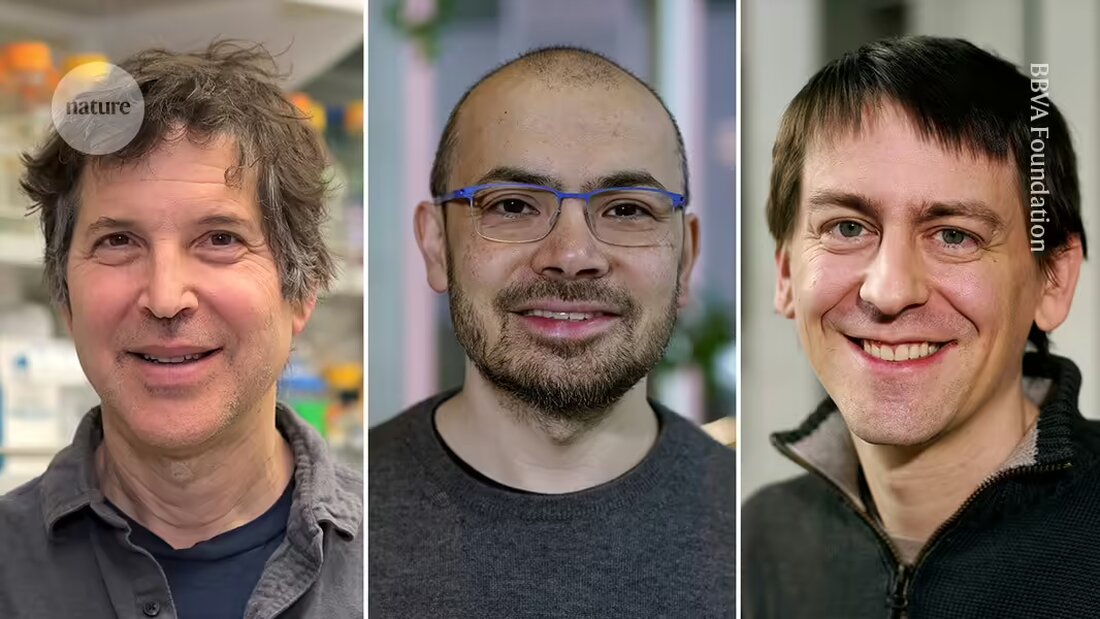Nobel Prize in Chemistry for developers of AlphaFold AI for predicting protein structures
The 2024 Nobel Prize in Chemistry was awarded to the developers of AlphaFold, an AI tool that revolutionizes protein structures.

Nobel Prize in Chemistry for developers of AlphaFold AI for predicting protein structures
For the first time — and certainly not the last — a scientific breakthrough made possible by artificial intelligence has been awarded a Nobel Prize. The 2024 Nobel Prize in Chemistry was awarded to John Jumper and Demis Hassabis of Google DeepMind in London for the development of a groundbreaking AI tools for protein structure prediction called AlphaFold, and to David Baker of the University of Washington in Seattle for his work on computational protein design over the past few years was revolutionized by AI.
The effects of AlphaFold, that was revealed a few years ago, are nothing short of transformative. The tool has made predicting protein structures – often, but not always, highly accurate – accessible to researchers at the touch of a button, enabling experiments that were unthinkable a decade ago. Biologists now speak of an era “before AlphaFold” and “after AlphaFold”.
"It has long been a dream to be able to predict the three-dimensional structure of proteins based on their amino acid sequences. This was considered impossible for decades," said Heiner Linke, the chairman of the Nobel Committee and a nanoscientist at Lund University in Sweden, during the award announcement. This year's honorees "have cracked the code," he added. The three winners will share a prize of 11 million Swedish krona (US$1 million).
Excellent AI
DeepMind introduced AlphaFold in 2018 when it won a biennial protein structure prediction competition, the Critical Assessment of Protein Structure Prediction (CASP). But it was the second version of the deep neural network, which was presented at the end of 2020, which triggered an earthquake in the life sciences.
Many of AlphaFold2's predictions at CASP were so accurate that they were indistinguishable from experimentally determined protein structures. This prompted John Moult, co-founder of CASP and computational biologist at the University of Maryland in College Park, to to declare in 2020, that “the problem has been solved in a certain way”.
Hassabis, co-founder and CEO of DeepMind, and Jumper, leader of the AlphaFold team, led the development of AlphaFold2. To predict protein structures, the neural network integrates similar structures from databases containing hundreds of thousands of experimentally determined structures and millions of sequences of related proteins – which contain information about their shapes.
In 2021, DeepMind The underlying code of AlphaFold2 is available free of charge, along with the data required to train the model. One AlphaFold database, prepared in collaboration with the European Molecular Biology Laboratory and the European Bioinformatics Institute in Hinxton, UK, now contains the structures of most proteins from all organisms represented in genetic databases: a total of about 214 million predictions. This year the company introduced one third version of AlphaFold that can also model other molecules that interact with proteins, such as drugs.
The revolution that Jumper, Hassabis and their colleagues have unleashed is still in its early stages, and AlphaFold's full impact on science may not be known for years. But the tool is already helping scientists to gain new insights.
A pioneering team used the tool, along with experimental data, to nuclear pore complex to map, one of the largest machines in our cells that transports molecules in and out of the cell nucleus. Last year, two teams analyzed the entire AlphaFold database to discover the deepest corners of the protein universe, identifying new protein families and folds and surprising connections in the machinery of life.
Many researchers hope that AlphaFold and other AI tools it has inspired will transform medicine. However, it is still unclear, how, or whether, AlphaFold will streamline the costly and multi-step process of developing safe new drugs.
Creating new proteins
More than a decade before DeepMind began working with AlphaFold, computational biophysicist David Baker of the University of Washington in Seattle and his colleagues developed software tools for modeling protein structures based on physical principles called Rosetta. The tool had early success in the design of novel proteins.
Over the years, Baker's team has applied Rosetta to predict protein structures—it was among the top performers at numerous CASPs before AlphaFold's recent dominance—as well as to design novel proteins such as enzymes and self-assembling protein nanoparticles.
When AlphaFold2 was announced — but not yet released — Baker and his team, including computational chemist Minkyung Baek, now at Seoul National University in South Korea, set out to understand the software and apply some of its tricks to an earlier AI-based version of Rosetta. The first version of the resulting RoseTTAFold network performed almost as well as AlphaFold2. Since 2021, both networks have been continually improved by their developers and other scientists to address new challenges, such as predicting the structure of complexes made up of several different interacting proteins.
In recent years, Baker's team has been particularly productive in applying machine learning to his lab's raison d'être: to create new proteins that have never been seen in nature. A recently developed tool by Baker's team that combines RoseTTAFold with image-generating diffusion neural networks has led to a quantum leap in researchers' ability to design proteins.
Although computational tools like AlphaFold are not a replacement for experimental studies, they are an accelerator, scientists say. "This will enable a new generation of molecular biologists to ask more advanced questions," said CASP judge Andrei Lupas, an evolutionary biologist at the Max Planck Institute for Developmental Biology in Tübingen, Germany. 2020 to Nature.

 Suche
Suche
 Mein Konto
Mein Konto
